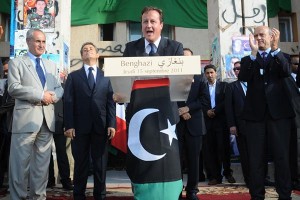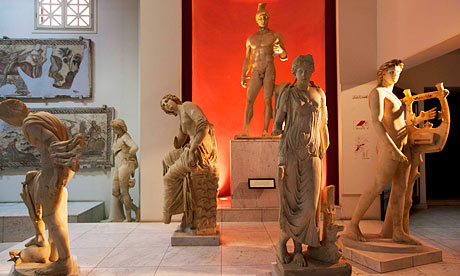By George Grant
Tripoli, 24 May:
Prime Minister Abdurrahim El-Kib is in London today for talks with British Prime Minister David Cameron.
A spokeswoman . . .[restrict]at the British Embassy in Tripoli confirmed that the two men will cover a wide range of issues, including the next stage of Libya’s democratic transition, in particular next month’s general elections and the need for Libya’s transitional authorities to honour their social contract with the Libyan people.

At a time of ongoing concern about the mistreatment of detainees in detention centres controlled by both the government and militias outside of government control, David Cameron will also raise the question of what the Libyan government is doing to address this situation, and how the United Kingdom can assist in that regard. The UK is currently assisting Libya on both prison reform and police training. Cameron will also raise the issue of militias in Libya more generally.
Less than one week on from the death of Abdelbasit al-Megrahi, it is believed that the issue of reopening the investigation into the Lockerbie case will also be discussed, including the possibility of allowing British police to travel to Libya to carry out enquiries. The investigation into the murder of WPC Yvonne Fletcher, shot by an unidentified gunman outside the Libyan embassy in London in April 1984, will also be discussed.
Having helped lead the international intervention to protect Libyan civilians from forces loyal to Muammar Qaddafi in last year’s revolution, the UK has also declared a keen interest in working with Libya on post-conflict reconstruction.
UK Trade and Investment (UKTI) has earmarked Libya as a “High Value Opportunity” (HVO), the only country in the world to have received this designation, which is ordinarily reserved for specific programmes such as major international sporting events and overseas construction projects.
In spite of this designation, however, British businesses have so far been under-represented in Libya. Not a single British company has officially registered to attend the Libya Build 2012 Trade Fair, as compared to 134 companies from Italy, 42 from France, and 40 from tiny Malta. It is believed that British firms are still concerned about the security situation in Libya. [/restrict]







